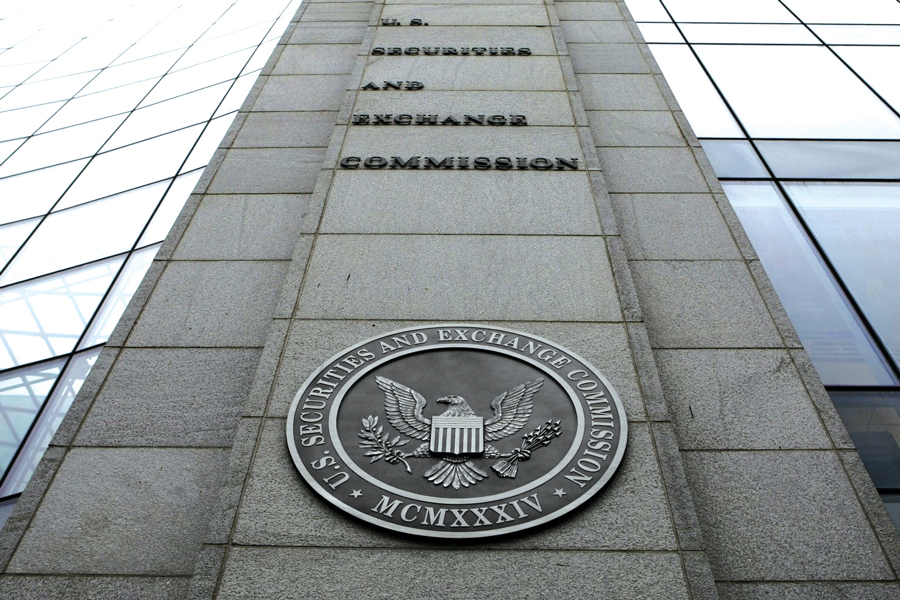

Trade associations representing investment advisers and the financial industry as well as congressional Democrats are encouraging the Securities and Exchange Commission to expand climate-risk reporting by public companies.
They are among the groups and individuals who submitted more than 300 comment letters as of Tuesday, as the deadline neared for the SEC’s request for public input on its effort to evaluate requirements surrounding climate disclosures.
The agency issued guidance in 2010 on how companies should report their exposure to risks related to climate change, which is currently a voluntary exercise. With the surge in sustainable investing, the SEC is looking to increase the amount of information on environmental social and governance factors available to investors.
The effort — a priority for Chairman Gary Gensler and the Commission’s new 3-2 Democratic majority — appears to be getting support, based on a sample of comment letters.
“We believe the provision of more consistent, comparable and reliable ESG disclosures of material information by corporate issuers will allow investment advisers to better serve their clients by improving transparency for investors and facilitating apples-to-apples analysis and comparison of issuers,” Investment Adviser Association general counsel Gail Berstein wrote in a June 11 comment letter. “This will in turn lead to better and more accurate pricing of risks.”
The Securities Industry and Financial Markets Association also is on board.
“SIFMA welcomes the SEC’s involvement in facilitating the disclosure of consistent, clear, intelligible, comparable and accurate information on climate change that is useful to investors,” SIFMA managing director and associate general counsel Melissa MacGregor wrote in a June 10 comment letter. “SIFMA recommends the SEC adopt a smart mix of climate disclosure requirements, consisting of (A) a principles-based requirement to disclose material climate-related information and (B) a limited set of core metrics that are generally applicable across industries.”
BlackRock Inc., one of the leading asset managers weighed in in favor of beefing up climate reporting.
“Because more comparable and consistent climate-related disclosures are in issuers’ as well as investors’ interests, BlackRock supports the SEC mandating climate-related disclosures,” BlackRock senior managing director Sandra Boss and two other firm officials wrote in a June 11 comment letter.
Congressional Republicans have resisted efforts from the SEC to ramp up ESG oversight, which began with a series of moves by then-Acting SEC Chair Allison Herren Lee earlier this year before Gensler was confirmed by the Senate to head the agency.
Republican objections came out in the comment letters.
“We do not believe that any further securities regulations to specifically address global warming are necessary or appropriate and will only serve to further discourage firms from becoming publicly traded, thus denying significant investment opportunities to retail investors,” Sen. Patrick Toomey, R-Pa., and all of his GOP colleagues on the Senate Banking Committee wrote in a June 13 comment letter. “The push for more disclosure related to global warming has little to do with providing material information for investment purposes. Rather, activists … are trying to impose their progressive political views on publicly traded companies, and the country at large, having failed to enact change via the elected government.”
House and Senate Democrats supported the SEC’s climate-disclosure, initiative, which Rep. Sean Casten, D-Ill., and Sen. Elizabeth Warren, D-Mass., called “a necessary first step” in illuminating the systemic risk that climate change poses for the global financial system in a June 11 comment letter.
The debate between Republicans and Democrats over climate-risk disclosure has centered on whether it is material to a company’s financial performance. Morningstar Inc. said that it is.
“Fundamentally, as the effects of climate change — and governments’ response to it around the world — accelerate, climate and carbon risk has increasing become material for a host of sectors and publicly traded companies,” Aron Szapiro, Morningstar head of policy research, wrote in a June 9 comment letter. “Therefore, the SEC must move toward mandatory, consistent, actionable disclosures on climate change because such disclosures are financial material.”
But the American Securities Association cautioned that the atmosphere around the ESG disclosure is biased toward those who want more when, in fact, there are plenty of skeptics the SEC should heed. It highlighted articles and research about the performance and expense of ESG funds.
“[W]e tried to raise some questions the SEC may not have previously thought about and introduce some new information into a discussion dominated by passionate opinions and conflicted market participants,” ASA chief executive Christopher Iacovella wrote in a June 11 comment letter.

Executives from LPL Financial, Cresset Partners hired for key roles.

Geopolitical tension has been managed well by the markets.

December cut is still a possiblity.

Canada, China among nations to react to president-elect's comments.

For several years, Leech allegedly favored some clients in trade allocations, at the cost of others, amounting to $600 million, according to the Department of Justice.
Streamline your outreach with Aidentified's AI-driven solutions
This season’s market volatility: Positioning for rate relief, income growth and the AI rebound
